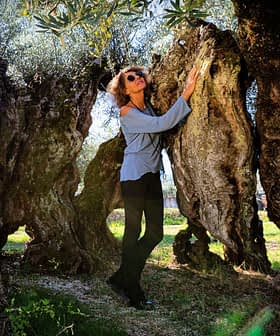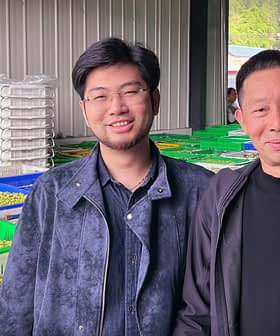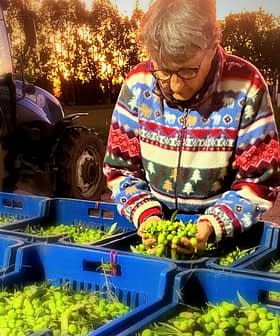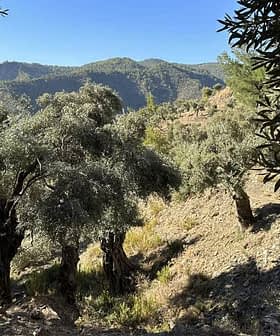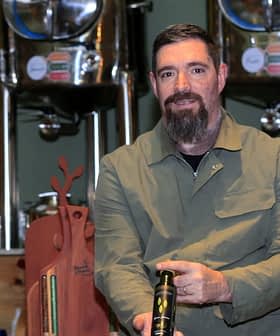Meet the Producer Behind Turkey's Most-Awarded Extra Virgin Olive Oil
Bahar Alan started producing olive oil as a hobby but has since dedicated herself to cultivating local varieties to produce high-quality organic olive oil.
 Bahar Alan
Bahar Alan 6.1K reads
6.1K readsNovavera, a Turkish olive oil producer specializing in rare local varieties, won multiple awards at the 2021 NYIOOC competition. The company, founded in 2018, focuses on producing healthy olive oil in harmony with nature, using sustainable practices and emphasizing local varieties. Novavera also aims to expand its business model to include more farmers in their ecosystem through contracted organic olive farming.
Once again the producers behind Novavera proved to be among the biggest winners at the 2021 NYIOOC World Olive Oil Competition.
The Turkish company, which specializes in producing olive oil from rare local varieties, earned a third-consecutive Gold Award for its Trilye blend and three Silver Awards for its Ayvalik, Yamalak and organic blends.
Every year, we process at least one or two rare local cultivars and try to publicize them, such as Yamalak, which we believe is a hidden jewel.
According to Bahar Alan, the company’s founder and owner, Novavera is the most-awarded Turkish brand, having earned more than 200 accolades since it was founded in 2018.
See Also:Producer Profiles“After going through an illness, I realized the true importance of health and creating a bond with nature,” Alan told Olive Oil Times. “Through this, I came to know the true purpose of my life: to produce healthy food in the best way and doing it in harmony with nature.”
Part of this metaphorical rebirthing of Alan as an olive oil producer is conveyed in the name she chose for the company.
“Nova vera means ‘new spring’ and ‘new truth’ and can be translated as the ‘new truth of bahar’ (bahar means spring),” Alan said. “Producing olive oil, a healthy food, using the best possible approach is the new truth and purpose of my life, which I came to know after experiencing a tough time in my illness. This brand name reminds me of that purpose.”
The cornerstone of Novavera was laid when the company planted 2,000 trees over an area of 20 hectares in Ayvalik, which has been the olive capital of Turkey for centuries.
“At first, it started as a hobby that we wanted to do as a retirement project,” Alan said. “But being totally drawn to the subject, I was eager to learn everything I could find about producing healthier olive oil with higher amounts of phenolic compounds.”
“Now we have more than 160 hectares of groves in the Ayvalik and Manisa regions, which can be described as the old and new olive growing centers of Turkey, respectively,” she added.
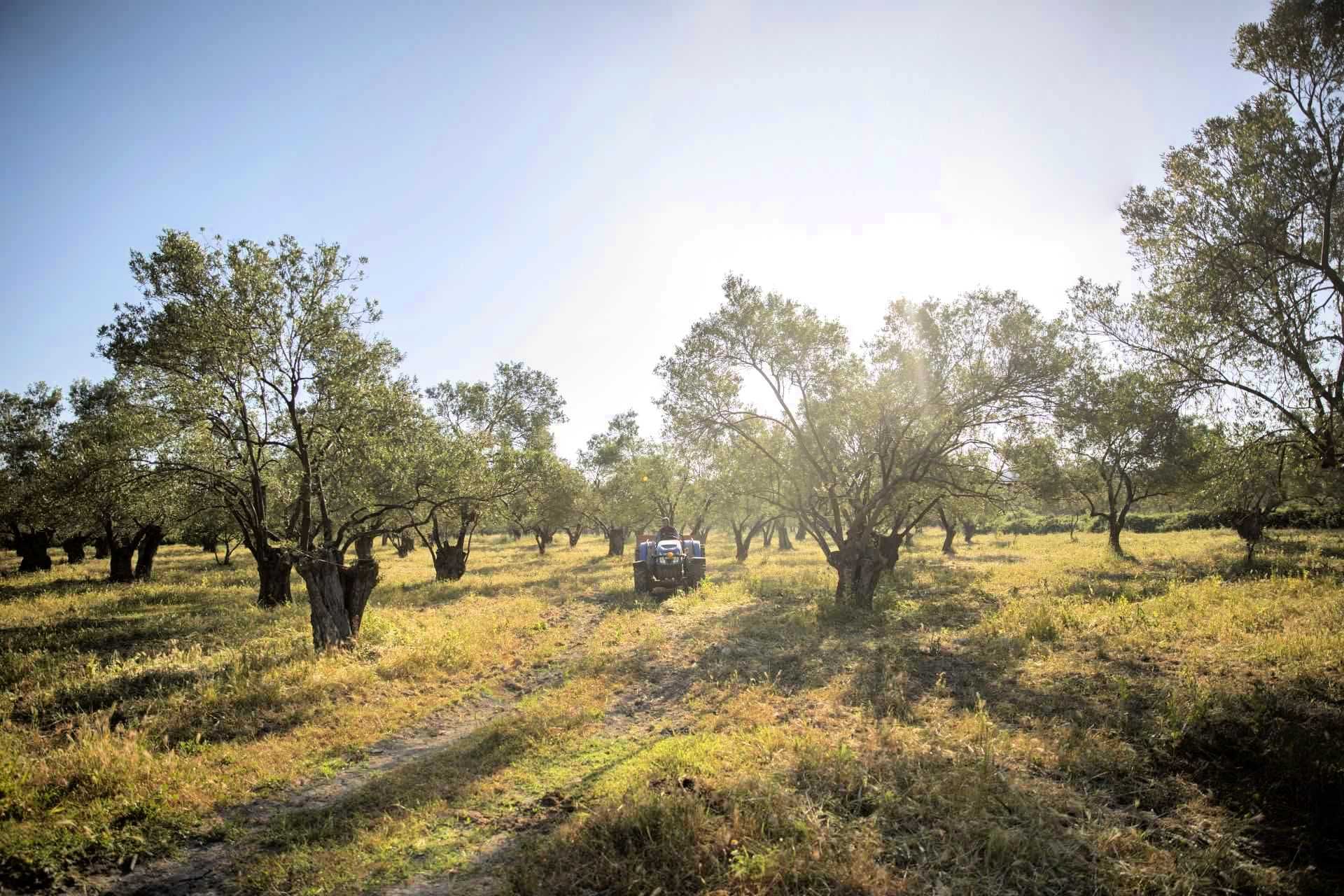
Photo: Bahar Alan
The first year was challenging for Alan and her team, who were not satisfied with the traditional approaches used in olive farming and harvesting.
“During the first year, our biggest challenge was the conventional habits of the farmers and the harvesters with whom we worked,” she said. “We had to work hard to convince them to use more modern ways like the use of crates instead of sacks, or harvesting machines instead of traditional sticks.”
Erratic weather was another challenge Alan and her team faced as hail, storms, and drought all took their toll on her trees in the first season.
Despite these challenges, Alan said that Novavera’s first year of production was well-received, with several oils earning international awards.
“This encouraged us to learn and invest more time and energy in this new business line,” Alan said. “For this reason, we attended two training sessions in California for olive oil tasting and production. There, we met experts and got the guidance to set up our own mill in the most efficient way.”
See Also:How to Produce Award-Winning Olive OilEarly harvesting is preferred for most of the olive varieties. The harvest period usually begins in late September and lasts until the first week of October.
“The post-harvest olives are immediately transported to our mills and pressed without causing any delay,” Alan said. “For the transportation of olives from distant locations, vehicles with climate-controlled storage systems are used.”
Once the olives arrive at the mill, they are rinsed using a double wash system to remove any residue on the fruit. Afterward, water passing through a special filter is used to wash the olives one last time. Once the olives have been washed, the cold extraction process begins.
“For olive oil to be considered cold extracted, the temperature of the olive paste should not exceed 27 ºC at any stage of production,” Alan said. “Our production infrastructure and its technology enable us to measure the temperature of the paste at six points and cools at specific points if needed.”
“Then the olive oil is stored in an air, light and heat resistant environment to maintain its freshness and quality,” she added.
While this process is familiar to many extra virgin olive oil producers, Alan said that the company’s emphasis on local varieties, including their Gold Award-winning blend, helps Novavera stand out.
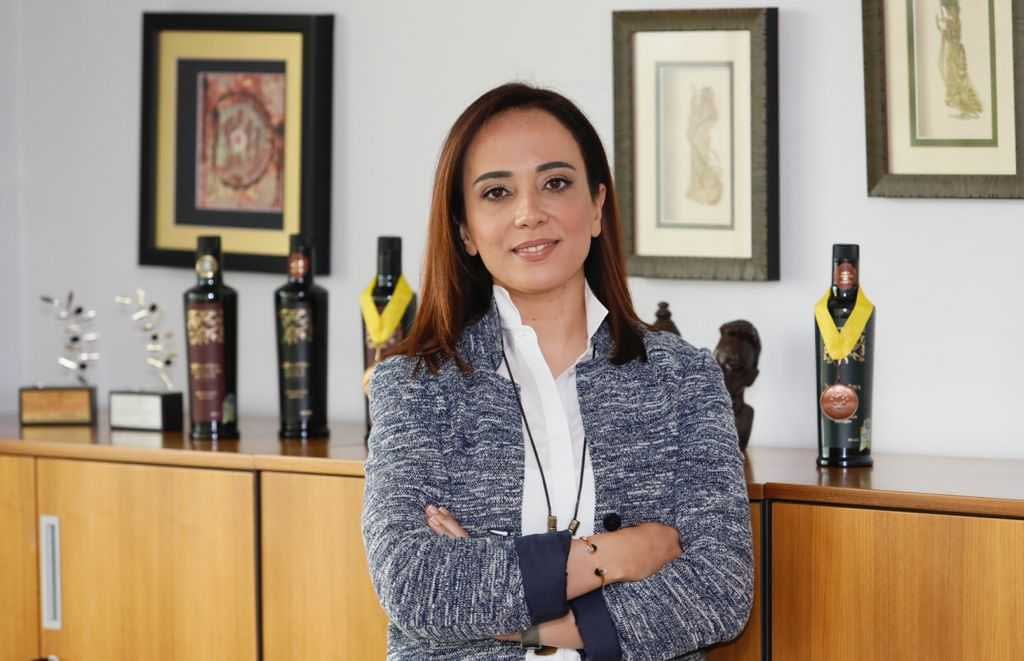
Bahar Alan
“This early harvest extra virgin olive oil blend is produced from Trilye olives, which grow at an altitude of 600 meters in the region of Manisa,” Alan said. “The oil produced by these olives contains high levels of polyphenols and an intense fruity flavor due to their growth on an ideal soil and climate.”
“Every year, we process at least one or two rare local cultivars and try to publicize them, such as Yamalak, which we believe is a hidden jewel,” she added.
Along with their reliance on local varieties, Alan also attributed her highly skilled team to the company’s enduring success.
“Our production team was trained for two years by experts from Italy and the United States,” she said. “They can work miracles in terms of maintaining the level of fruitiness and phenolic compounds, besides balancing the harmony of oils with the local varieties.”
See Also:The Best Olive Oils from TurkeyDespite putting strenuous efforts in each phase of production, Novavera is not immune to the challenges posed by climate change, which are becoming increasingly prevalent in Turkey’s Aegean region.
“Last year, we faced the negative effects of global warming,” Alan said. “Unfortunately, the quality and quantity of our crop were affected by drought. But we tried our best to overcome those challenges by applying modern organic agriculture methods to save our crops.”
According to Alan, climate change is the most significant challenge faced by farmers, not just in Turkey but also in the rest of the world.
“With each passing year, the prevalence of new diseases, untimely rains, droughts and global warming is increasing, all of which negatively impact the quality and quantity of crops,” she said.
Alan’s vision and core values are based on the idea of producing healthy food in harmony with nature. To this end, Novavera has developed a strategy to fight climate change.
The company has implemented sustainable production methods without generating any waste, including saving and recycling water.
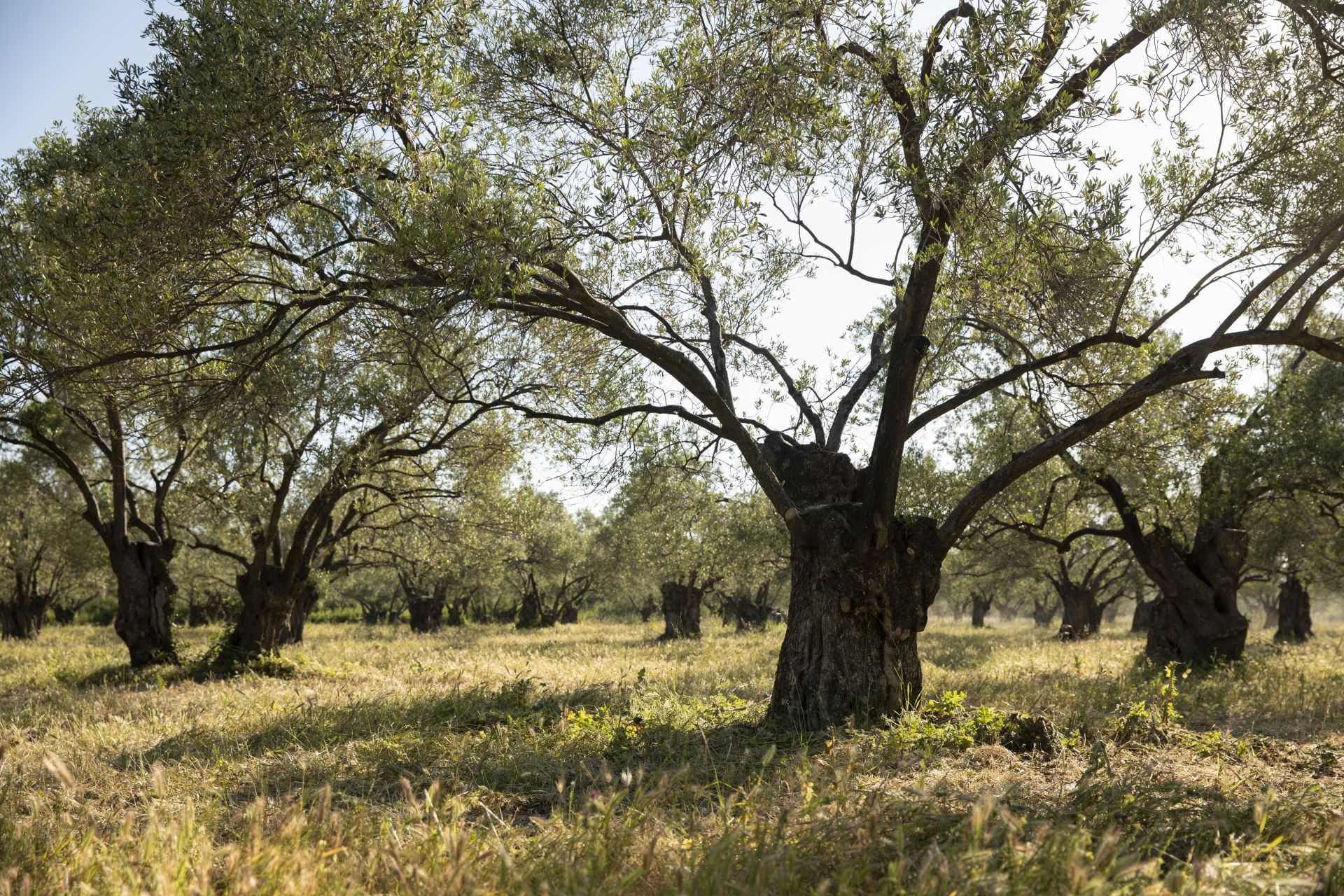
Photo: Bahar Alan
“We implement organic and biodynamic farming principles in our groves,” Alan said. “Our trees are watered by drip irrigation method only if needed. We ensure through accredited tests that no pesticide residue remains in our olive oils.”
“We produce without including any additional water to the olive paste to avoid the formation of water waste,” she added. “By sending our pomace to recycling facilities, we contribute to the transformation of this product into fuel.”
Along with environmental sustainability, Novavera balances the need to remain economically viable. As a result, the company currently exports 30 percent of its extra virgin olive to the United States, Europe and South Korea.
Alan hopes to increase that figure by working with other local producers, but only if they meet her company’s standards.
“We are working on a new business model to include more farmers in our ecosystem based on a ‘contracted organic olive farming’ model,” Alan said. “To avoid pesticide-caused cross-contamination, we will only process the olives that were grown in our own groves.”
“We would like to enable more farmers to grow their olives organically,” she added. “This model will help olive growers, who lack proper knowledge of organic farming, to apply organic farming principles to their groves.”
“Novavera will enable them to apply organic fertilizers and harmless organic pesticides by following a schedule under supervision,” Alan continued. “These contracted farmers will be able to mill their final organic products at Novavera. We believe this model will attract the olive grove owners who are abroad or living in cities and cannot take good care of their groves.”


